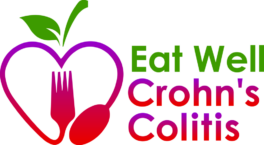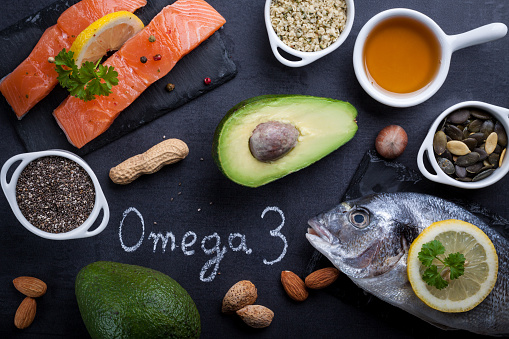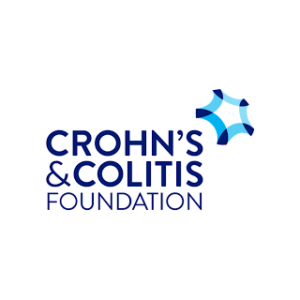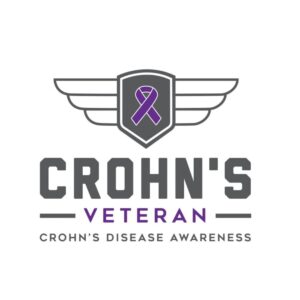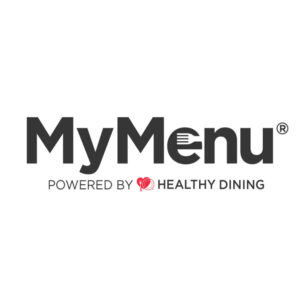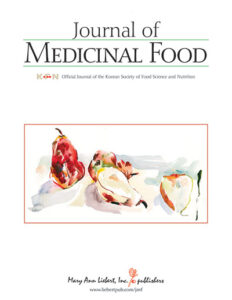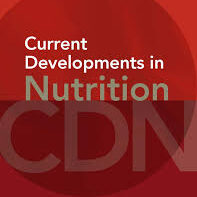The Specific Carbohydrate Diet (SCD) Diet for Crohn’s and Ulcerative Colitis
Alison Rosenstock, MS, RD
- Last Updated
The Specific Carbohydrate Diet, known as the SCD Diet, has a large cult following among individuals with inflammatory bowel diseases (IBD). Learn more about what it is, what foods are acceptable, and what the research says.
Advocates claim that strict adherence to the SCD diet is the key to achieving remission in Crohn’s Disease or ulcerative colitis (UC). But what is the SCD Diet? What is its role in the management of IBD symptoms? And where does the research stand in terms of the SCD diet’s proposed benefits for Crohn’s Disease and ulcerative colitis? Let’s take a closer look.
What is the SCD Diet?
The Specific Carbohydrate Diet was originally developed in the 1920s for the treatment of Celiac Disease. It was championed by physician Sidney Haas, who co-authored a book in 1951 about the SCD Diet’s role in Celiac Disease management.
The SCD Diet was later promoted by biochemist Elaine Gottschall, who made a case for the SCD as a therapeutic diet in the management of IBD in her book Breaking the Vicious Cycle: Intestinal Health Through Diet.
What are the Concepts Behind the SCD Diet?
According to Gottschall, carbohydrates have significant potential to influence the health of the microbiome. In IBD, undigested carbohydrates in the GI tract, particularly complex carbohydrates, starches, and lactose, can become excessively fermented by pathogenic intestinal bacteria. Her theory hypothesizes that this leads to overgrowth of these bad bacteria, which cause inflammation and injury to the mucosal lining of the gut.
The SCD Diet is centered around the concept that foods which contain one sugar molecule (such as glucose) are more readily digested and absorbed, which will halt the overpopulation of bad bacteria, allow the gut to heal, and improve the balance of the gut microorganisms. Along with the more easily digested carbs, the SCD Diet includes probiotics in the form of yogurt which has been fermented for 24 hours to eliminate the lactose.
The SCD Intro Diet
Following a flare and/or IBD symptom, the individual is instructed to begin what is referred to as the SCD Intro Diet, which includes the following foods for 2-5 days:
- dry curd cottage cheese
- lactose-free yogurt
- eggs
- apple cider
- homemade gelatin
- chicken soup
- broiled fish or beef patty
After that time, more foods are permitted, such as fresh fruits and vegetables, select nuts and seeds, unprocessed meats, and homemade marinades.
The recommendation is to follow the SCD Diet for one year during active flares, and for an additional year following the last IBD symptom. Gottschall advises resuming the diet if symptoms reappear.
Specific Carbohydrate Diet (SCD) Food List
The SCD Diet is defined by its extensive lists of allowed and excluded foods. Many of the approved foods on the SCD Diet are to be prepared from scratch to decrease the potential for added sugars and starches. This diet does not permit any packaged, processed, or canned foods.
The following foods are “allowed” under the SCD Diet:
- Unprocessed meats
- Most fresh fruits and vegetables
- Fats and oils
- Nuts and nut-derived flours
- Eggs
- Aged cheeses
- Honey
- Lactose-free yogurt
The following foods are “forbidden” under the SCD Diet:
- Milk
- Grains and Grain-Derived Flours
- Potatoes
- Okra
- Corn
- Soy
- Soft cheeses
- Juices from concentrate or with “natural flavors”*
- Coffee and tea
- Non-honey sweeteners
- Food additives and preservatives
*Food items containing “natural flavors” in general are not permitted
SCD Diet for Crohn’s Disease
The evidence is mixed regarding the SCD Diet’s effectiveness in treating symptoms of Crohn’s Disease.
One study examined subjects with pediatric Crohn’s Disease who were assigned to one of three diet groups for a 12-week intervention: the SCD Diet, a modified SCD Diet permitting oats and rice, and a whole foods diet which eliminated wheat, corn, sugar, milk, and food additives. While those in the SCD Diet group had reduced indicators of inflammation, the participants in the Modified SCD Diet group showed the greatest reduction in inflammation.
A 2021 study in Gastroenterology on adults with Crohn’s Disease found that subjects following the SCD Diet did not have improvements in disease remission that were superior to their counterparts who were assigned to the less restrictive Mediterranean Diet.
SCD Diet for Ulcerative Colitis
Elaine Gottschall advocated for the SCD Diet to be prioritized in IBD management after seeing positive results in her daughter’s experience with ulcerative colitis. Case studies have found that the SCD Diet helped induce clinical remission and favorably alter gut bacteria species in patients with UC.
However, the literature is limited on the SCD Diet’s effectiveness in ulcerative colitis. Though some SCD Diet studies indicate favorable outcomes in subjects with both Crohn’s Disease and ulcerative colitis, more research is needed that focuses specifically on the relationship between the SCD Diet and management of UC.
Physical Health Concerns with SCD Diet
A major physical health concern with the SCD Diet is the potential for deficiencies in key nutrients, particularly folate, thiamine, vitamins B6, D, A, and C, calcium, and potassium. Given the restrictive nature of the diet, it is possible for individuals on the SCD Diet to become malnourished.
Additionally, the SCD Diet may not be appropriate for patients with small bowel strictures as it is higher in fiber which may cause obstruction.
The SCD Diet has a specific list of ingredients and requires most foods to be prepared completely from scratch, which may not be realistic for everyone’s lifestyle. Following the diet to the letter requires a substantial amount of time, money, and access to cooking equipment. It also may be challenging to implement if the client is experiencing symptoms of IBD.
Mental Health Concerns with SCD Diet
Some proponents of the SCD Diet, particularly those active on message boards, can be overzealous in their promotion for the diet and insist that breaking from the SCD will worsen IBD. This may make others feel as though they have failed or done something wrong – especially those who find the SCD Diet too restrictive or are taking a more relaxed approach to eating.
The long list of unallowed foods and urging for “fanatical adherence” to the diet’s limitations may cause some individuals on the SCD diet to develop orthorexia nervosa. Orthorexia is a form of disordered eating characterized as an obsession with eating “perfectly” and can greatly interfere with a person’s life and mental and physical well-being.
Is the SCD Diet Right For Me?
The SCD Diet may be a helpful starting place, especially if it helps relieve symptoms of IBD. It may be a diet that is useful to temporarily get flares or other symptoms of IBD under control.
Some people with IBD may benefit from a modified version of the SCD Diet that allows for more food options such as oats, rice, or soy. Following a flare, it is best to incorporate new foods gradually, as tolerated, to help you get adequate nutrition from your diet.
Every person with IBD is unique and has different responses to different foods. Because of this, there is no single, uniform diet that is prescribed for IBD patients and the SCD Diet may not be feasible for everyone with Crohn’s Disease or ulcerative colitis.
It is worth noting that in a 2019 article in Current Treatment Options in Gastroenterology, physicians Oriana Damas and Maria Abreu and Registered Dietitian Luis Garces stated that they do not recommend the SCD Diet in their adult clinical practice due to its significant restrictions and difficulty to maintain, potential for Vitamin D deficiency, and limited research supporting the SCD’s role in healing the gut.
Working with your doctor and Registered Dietitian (RD) is the best way to determine a diet that is most suitable for your individual needs and ensures that you do not become deficient in vital nutrients.
Specific Carbohydrate Diet Recipes
Eat Well Crohn’s Colitis has developed several recipes which are SCD Diet-friendly, including breakfast, lunch/dinner, snacks/side items, and beverages.
- Asparagus & Mushroom Frittata
- Pan Seared Chilean Sea Bass with Crispy Capers
- Honey Glazed Carrots
- Avocado Pudding
- 3-Ingredient Electrolyte Drink
Take Home Messages- SCD Diet for Crohn’s Disease and Ulcerative Colitis
- The theory behind the SCD Diet is that more readily digestible carbohydrates will prevent bad bacteria from overpopulating the GI tract and cause inflammation and damage to the intestinal lining.
- The research is currently mixed on the effectiveness of the SCD Diet on managing IBD symptoms. While some studies indicate the SCD Diet may help reduce inflammation in Crohn’s and UC, there is also support that other approaches, like the more flexible Mediterranean Diet, are suitable for individuals with Crohn’s Disease.
- There are concerns about nutritional deficiencies with the SCD Diet, including the potential for malnutrition, as well as the development of orthorexia nervosa. Additionally, many people find the SCD Diet challenging to maintain as it allows very few permissible foods.
- It is best to work with your physician and dietitian to determine a dietary regimen that handles your unique nutrient needs and food triggers.
All included information is not intended to treat or diagnose. For medical questions, please consult your healthcare provider.
